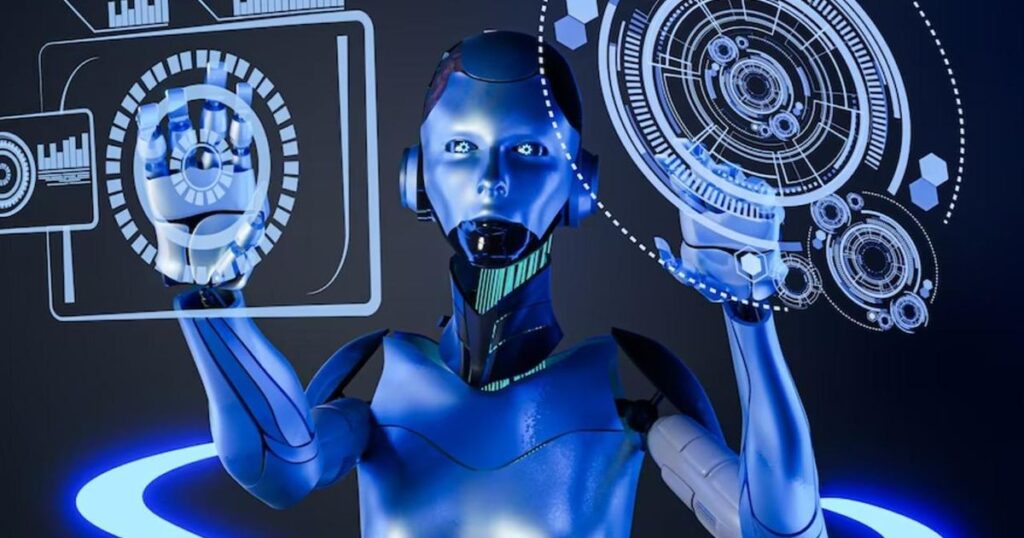Artificial intelligence (AI) is evolving rapidly, fundamentally reshaping industries, business processes, and even day-to-day tasks.
With AI’s increasing complexity, both businesses and consumers are seeing benefits in terms of efficiency, customization, and innovative experiences.
Let’s take a closer look at the top AI technology trends driving this transformation and why they’re critical for the future.
1. Generative AI and Content Creation
Generative AI, led by models like OpenAI’s GPT and DALL-E, is transforming content creation, allowing for realistic text, image, audio, and video generation.
Content marketers, educators, and even entertainers are using these tools to produce high-quality content at scale. By enabling automation in creative processes, generative AI is becoming a powerful asset across multiple sectors.
Key Applications: Digital marketing, social media, education, and entertainment industries.
2. AI-Driven Personalization
AI-powered personalization is enhancing user experiences in retail, e-commerce, and media by tailoring recommendations to individual preferences.
Leveraging customer data, these systems create personalized shopping, streaming, and browsing experiences.
AI personalization not only improves customer satisfaction but also boosts engagement and revenue by accurately predicting what users want.
Key Applications: E-commerce, online streaming services, targeted advertising.
3. AI for Predictive Analytics and Decision-Making
Businesses are increasingly using AI to predict future trends and customer behaviors. Predictive analytics driven by machine learning and AI algorithms help organizations make informed decisions in real time.
This trend is crucial in finance, healthcare, and logistics, where accurate forecasting can be the difference between success and failure.
Key Applications: Finance, healthcare, supply chain management, and marketing.
4. Edge AI for IoT Devices
Edge AI is taking AI capabilities closer to the source of data, enabling faster processing and reduced latency in Internet of Things (IoT) devices.
By processing data on-device rather than in the cloud, Edge AI makes real-time responses possible, critical for applications like autonomous vehicles, smart manufacturing, and home automation.
Key Applications: Autonomous vehicles, smart homes, manufacturing, and healthcare devices.
5. Natural Language Processing (NLP) Advancements
NLP has seen tremendous progress, allowing machines to understand and respond to human language more naturally. From chatbots and virtual assistants to translation services, NLP technologies are enhancing human-computer interaction.
With advancements in NLP, such as sentiment analysis and emotional recognition, businesses can improve customer service, analyze social media trends, and streamline communication processes.
Key Applications: Customer support, translation services, social media monitoring, and content moderation.
6. AI in Healthcare and Medical Diagnosis
AI is revolutionizing healthcare, from diagnostics to treatment planning. Machine learning models can analyze medical images, predict patient outcomes, and even suggest personalized treatments.
The use of AI in drug discovery is accelerating the development of new medicines, providing timely insights into potential therapies for complex diseases.
Key Applications: Medical imaging, patient data analysis, personalized medicine, and drug discovery.
7. AI-Powered Cybersecurity
As cyber threats evolve, AI is becoming essential in identifying and countering security risks.
AI models can detect unusual network activity, analyze potential threats, and respond to incidents in real time, making cybersecurity systems more robust.
This trend is particularly important as businesses face increasingly sophisticated cyberattacks.
Key Applications: Threat detection, real-time incident response, and security automation.
8. Explainable AI (XAI)
Explainable AI is becoming a necessity as AI systems are deployed in critical areas like healthcare, finance, and law enforcement.
XAI offers transparency in AI decision-making, helping stakeholders understand and trust AI models. As AI applications grow, having explainable, transparent AI is crucial for building ethical and responsible AI practices.
Key Applications: Healthcare, finance, legal systems, and regulatory compliance.
9. Robotic Process Automation (RPA)
RPA uses AI to automate routine, repetitive tasks, reducing the need for human intervention in areas like data entry, invoice processing, and customer service.
By automating mundane tasks, businesses can focus on higher-value activities, improving productivity and reducing operational costs.
Key Applications: Finance, human resources, customer service, and logistics.
10. AI Ethics and Responsible AI Development
With AI’s rapid integration into society, ensuring ethical and responsible development is critical. Trends in AI governance and ethics focus on addressing biases, protecting user privacy, and developing transparent AI systems.
Organizations are increasingly adopting ethical AI guidelines, ensuring AI development aligns with societal values and laws.
Key Applications: Policy-making, AI development frameworks, corporate governance, and compliance.
Final Thoughts
The rapid evolution of AI technology is opening up new possibilities across industries, and the trends above highlight how AI is shaping our future.
Whether enhancing personalization, improving healthcare, or fortifying cybersecurity, AI’s influence is undeniable.
For businesses, staying informed on these trends is crucial for harnessing AI’s full potential while ensuring ethical and responsible use.
Key Takeaways
- Generative AI is advancing creative processes across multiple sectors.
- Personalization with AI enhances user experience, especially in retail and media.
- Predictive analytics allows businesses to make data-driven decisions.
- Edge AI brings intelligence to IoT devices for real-time processing.
- Explainable AI ensures transparency and trustworthiness in critical applications.
- Ethical AI development is necessary for sustainable and responsible AI use. For more Software AI information check the nowstartai.

